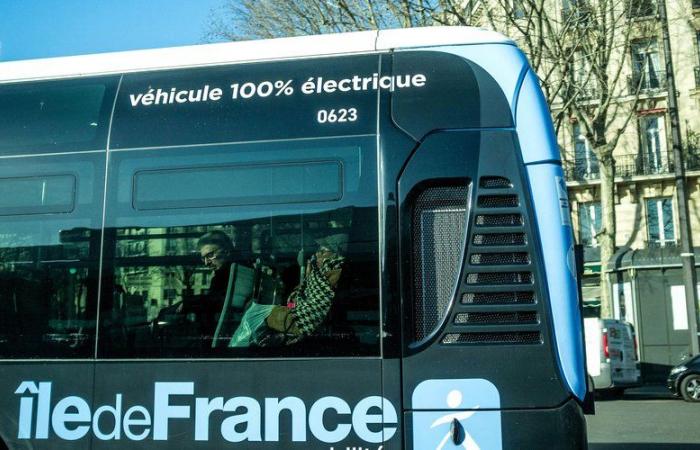
After the second disaster, RATP immediately removed the 149 electric buses from circulation, “as a precautionary measure”.
A defect in the manufacturing of the batteries, leading to a short circuit, is responsible for two fires in electric buses manufactured by the Bolloré group and operated by the RATP in April 2022, according to the investigation report published on Wednesday.
A Bluebus electric bus caught fire in the 13th arrondissement of the capital on April 29, a few weeks after another bus fire in the 5th arrondissement. There were no injuries in these two incidents.
After the second disaster, RATP immediately removed from circulation, “as a precautionary measure”, the 149 electric buses in the series produced by Blue Solutions, a Bolloré group company.
“The most likely direct cause” of the fires is “a short circuit” at the cell level, inside the batteries. “The investigations carried out showed that this cause lay in the battery manufacturing process,” concludes the Land Transport Accident Investigation Office (BEA-TT).
“Some sheets” were “poorly positioned”
Each bus is powered by six battery packs, each containing nine modules, themselves made up of a “stack” of 20 cells, isolated from each other by sheets of insulation.
“Certain sheets” were “poorly positioned” at the factory and did not allow sufficient insulation between the cells – a defect which was not detected by quality control, explains the report, which emphasizes that the manufacturer had launched from 2022 the recall of the buses concerned.
The batteries used in these buses are solid-state Lithium Metal Polymer (LMP) batteries, competing with the lithium-ion batteries most commonly used for electric vehicles. They suffered a “thermal runaway”, that is to say an uncontrolled reaction until it burst into flames.
“It appears necessary to adapt the regulations”
The investigation report also points to “a delay in defining the technical regulations applied” to vehicles with innovative technologies.
In this case, the approval does not require any driver warning device in the event of thermal failure of the batteries. And certain approval tests planned for conventional lithium-ion batteries, “notably fire resistance tests”, do not apply to LMP technology.
“It appears necessary to adapt the regulations,” concludes the BEA-TT.
The report also recommends, for example, “providing the roof” of electric buses, whose batteries are installed in the roof structure, with “thermal protection” to “guarantee “safe evacuation” of passengers.





